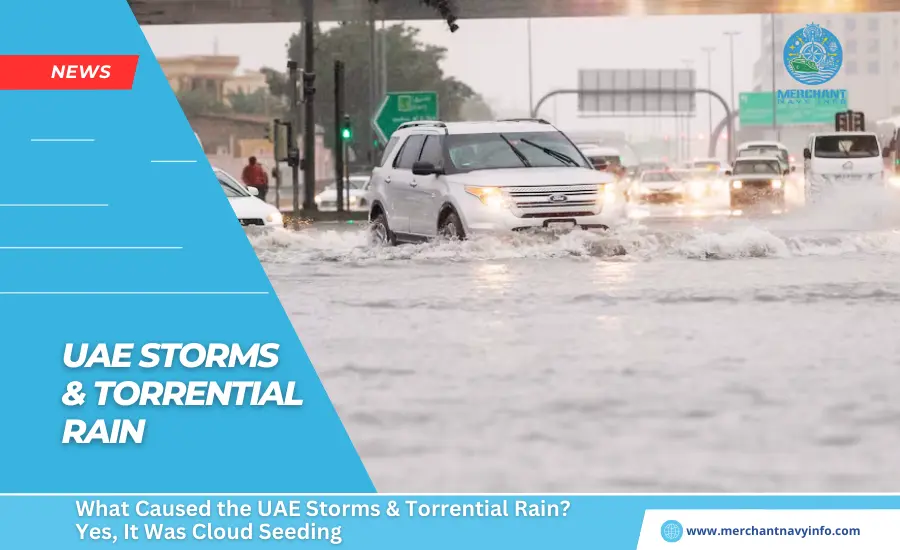
Extensive rainfall and storms took over the UAE on Tuesday. The government issued work-from-home orders for public sector employees and schools.
The National Center of Meteorology (NCM) warned residents about the heavy rains that started in the early hours of the day.
Strong winds and torrential downpours were reported in Abu Dhabi, Dubai, Sharjah, and Ajman. At the same time, videos of golfball-sized hail in Ras Al Khaimah, Al Ain, and parts of the UAE capital also circulated online.
Cloud Seeding Missions Increase Rainfall and Bring UAE Storms
GRAZIA Middle East spoke to a meteorology expert from the NCM, who confirmed that cloud seeding operations had been conducted in the last 24 hours. The representative also shared details on how many of the trips took place.
“Whenever there are clouds in the sky, we conduct cloud seeding operations. From yesterday till today [Tuesday afternoon], we carried out six trips,” he said.
The representative will see a temperature drop in the UAE due to the clouding.
“There is a considerable decrease in temperatures today and on Wednesday. It is a drop of around 10 degrees Celsius,” he added.
However, temperatures will increase once the weather stabilizes, starting Wednesday evening. Rainy conditions are expected on April 17. in the eastern and northern parts of the country, such as Fujairah and Ras Al Khaimah.
UAE’s Cloud Seeding Program
For many years, the UAE has spearheaded cloud seeding to address the country’s generally dry environment. This method supplies extra rainfall to boost agriculture and address water security issues.
The seeding method is intricate, and much research is being done to determine its effectiveness. However, the basic method is to attempt to produce more rain. This is done by launching salt flares or other small materials into clouds. The UAE started its seeding program in the 90s. As the 2000s wore on, the National Centre of Meteorology (NCM) collaborated with international partners like NASA and the US National Center for Atmospheric Research.
According to Mariam Al Mheiri, Minister of Climate Change and Environment, the nation’s rain enhancement initiative is essential to enhancing food and water security. It is also important for replenishing groundwater reserves and driving tourism.









